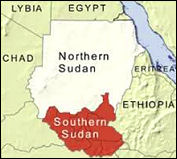 Earlier this month, the Directorate of Defense Trade Controls (“DDTC”) issued a public notice proposing to revise the definition of defense services set forth in section § 120.9 of the International Traffic in Arms Regulations (“ITAR”). The most significant change is that the new rule would exclude the provision of public domain data from the definition of defense services. This is both a welcome revision and an embarrassing admission by DDTC that the previous definition was absurdly broad.
Earlier this month, the Directorate of Defense Trade Controls (“DDTC”) issued a public notice proposing to revise the definition of defense services set forth in section § 120.9 of the International Traffic in Arms Regulations (“ITAR”). The most significant change is that the new rule would exclude the provision of public domain data from the definition of defense services. This is both a welcome revision and an embarrassing admission by DDTC that the previous definition was absurdly broad.
Under the current definition, if a U.S. person tells a foreign person that the ratio of an aircraft’s speed to the speed of sound affects the forces on the aircraft and that the speed of sound at sea level is 340.29 m/s, the U.S. person has arguably provided a defense service in the design and development of a defense article if the foreign person was previously unaware of those facts. Telling a person that it is a good idea to clean a rifle regularly could also be construed as a defense service because it provides assistance in the use of a defense article.
The problem here is that DDTC takes a rather counterintuitive (or more bluntly, absurd) view of what is and isn’t public domain. Previously it has advised an exported that photographs of military cockpits found on the Internet was not public domain. The basis for this decision is that the definition of public domain in section 120.11 of the ITAR does not specifically reference the Internet. (It does however include information generally accessible at libraries open to the public and most libraries make Internet access available to anyone who walks through the door.) So, until DDTC deals with how it wants to define the public domain, the ITAR could still forbid a U.S. person from sending an Internet link to a foreign person.

 Posted by
Posted by  Category:
Category: 

 If you’ve been staying awake at night worried about Cuban terrorist attacks in your neighborhood, you can sleep better now. The Office of Foreign Assets Control (“OFAC”) has
If you’ve been staying awake at night worried about Cuban terrorist attacks in your neighborhood, you can sleep better now. The Office of Foreign Assets Control (“OFAC”) has  Today the Office of Foreign Assets Control (“OFAC”) released
Today the Office of Foreign Assets Control (“OFAC”) released  Meritor, a Michigan-based manufacturer of vehicle parts, recently
Meritor, a Michigan-based manufacturer of vehicle parts, recently  This blog
This blog 

